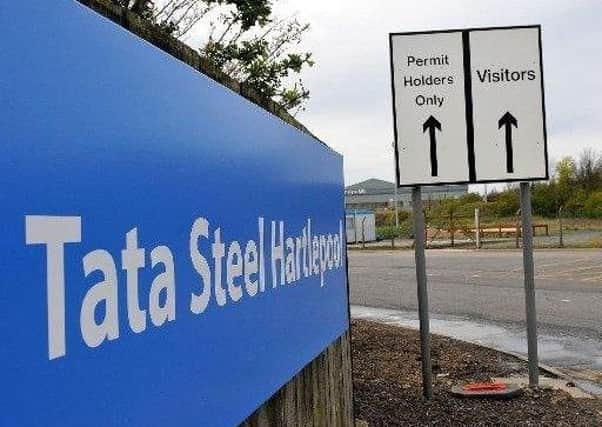Fears in Hartlepool over future of steel trade after Donald Trump imposes tariffs


US tariffs on steel of 25% imports from the EU have come into force, raising fears of a transatlantic trade war.
President Donald Trump had originally imposed the tariffs in March, saying a reliance on imported metals threatened national security.
Advertisement
Hide AdAdvertisement
Hide AdHartlepool has two steel plants in Brenda Road, the 20-inch mill operated by Tata and Liberty House group’s 42-inch and 84-inch pipe mills.
The director of trade body UK Steel, Gareth Stace, said he was “very, very worried” about the potential impact of a “double whammy” on British producers from the Trump administration’s decision.
UK steel producers could be shut out of an American market where they sold around £350 million of exports last year, while also facing increased competition from a “tsunami” of cheap steel diverted away from the US, he said.
Mr Stace said it was too early to speculate on the likely impact on jobs, but said: “At worst, we could fall straight back into the crisis we suffered in 2015/16, which was the worst steel crisis in a generation.
Advertisement
Hide AdAdvertisement
Hide Ad“We are heading for a trade war, which is going to be all losers - there will be no winners. The US economy will suffer as much as any other economy.”
Mr Stace said the EU should activate “safeguard measures” to prevent European markets being disrupted by a surge of as much as 25 million tonnes of steel diverted from the US.
The European Union is set to strike back against Donald Trump’s “illegal” and “dangerous” steel tariffs.
Cecilia Malmstrom, the EU trade commissioner, announced the EU would be seeking to implement a number of retaliatory tariffs on American products by June 20.
Advertisement
Hide AdAdvertisement
Hide AdThe move comes after Mr Trump’s decision to impose a 25% duty on European steel and a 10% duty on European aluminium.
She said: “This is further weakening the transatlantic relations and it also increases the risk of severe turbulences in the markets globally.”